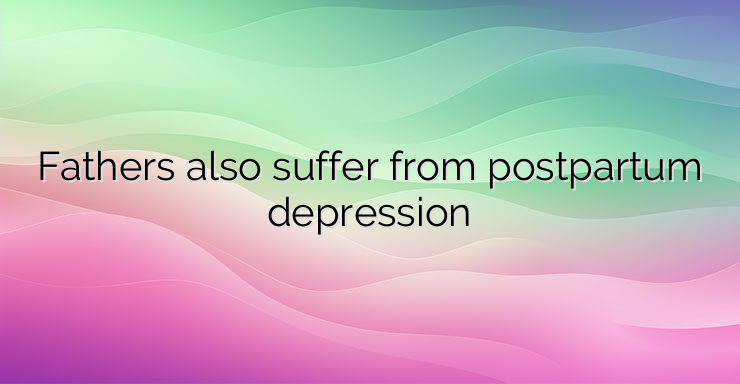A study shows that over a quarter of young fathers show symptoms of postpartum depression. The unexpected results prompt the team that conducted the study to trace the possible reasons for this and possibly look for a method to alleviate the condition of fathers in this very positive period of their lives. In view of the fact that men do not go through any physical and hormonal transformations during the pregnancy of their partner, it is difficult to believe that the reasons for postpartum depression in them can be expressed in a purely emotional experience. However, it turns out that’s exactly the case. Men with weaker psyches manage to empathize with the woman next to them to such an extent that they develop postpartum depression similar to hers. The study was conducted in Sweden and found that cases of postpartum depression in fathers have peaked in the last 10 years. It involves 450 male volunteers, each of whom became a father in the last year. Statistics show that 28% of them showed symptoms of postpartum depression, increased anxiety, strong excitability, quickly turning into despondency, anger, irritability, etc. In 4% of the monitored men, the symptoms were very serious. An interesting fact found during the study is that only 20% of men showing symptoms of postpartum depression sought professional help. The reason given for this is the fact that the father’s condition often remains in countries of the main emphasis after the birth of a baby in the family. NEWS_MORE_BOX Postpartum depression is mainly associated with young mothers and especially with women who give birth for the first time. This is the reason why the mental state of young fathers has received less scientific attention, but the cited study showed that this needs to change. According to scientists, the need to combine fatherhood with work, stress and other aspects of life have no less impact on the young father’s psyche than on the mother’s. Observations show that in cases where the mother has postpartum depression, the risk of such in the father also doubles. The risk is further increased in young families with twins. Coping with postpartum depression requires effort from both partners. When they fight together and especially in cases where they rely on a little help from a specialist, the condition is easily controlled and all the attention of the parents can be directed to the care of the child.


Leave a Reply